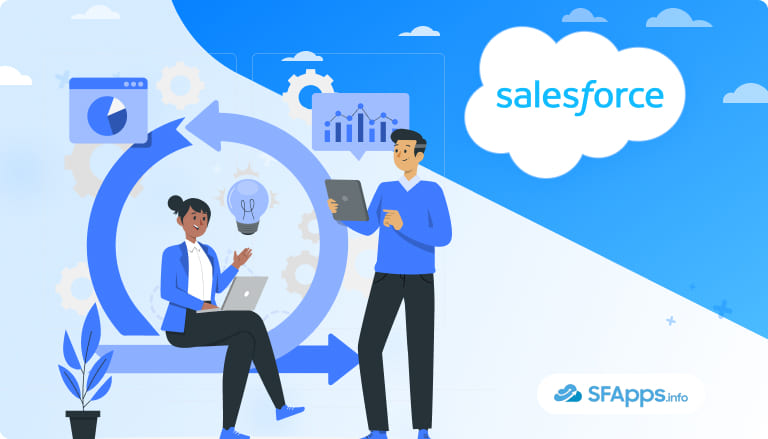
What is RevOps Salesforce?
Salesforce RevOps, or Revenue Operations in Salesforce, is all about helping your sales, marketing, and customer support teams work better together. Instead of each team using their own tools and doing things their own way, RevOps brings everything into one place inside Salesforce.
Think of it like this: when a lead comes in through marketing, it needs to be followed up by sales and then supported by the customer team. With RevOps, everyone sees the same data and follows the same process. That means fewer mistakes, faster follow-ups, and a better experience for the customer.
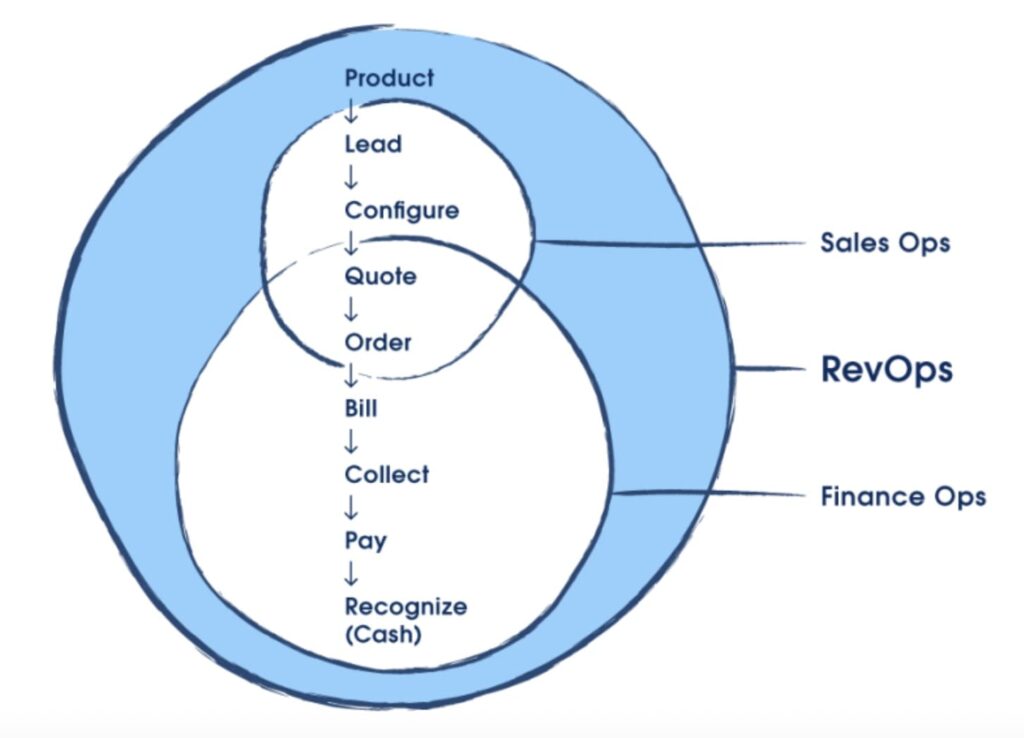
Image from Salesforce
RevOps isn’t just about reports or dashboards. It’s about removing confusion, fixing broken handoffs between teams, and ensuring the company moves in the same direction. Inside Salesforce, this can mean setting up the right automations, using shared dashboards, and tracking the full journey from lead to closed deal (and beyond).
At the end of the day, RevOps helps teams save time, increase revenue, and stay focused on what matters: growing the business.
- Key Skills and Tools for RevOps Salesforce Consultants
- What Does a RevOps Consultant Do?
- Who Can Benefit From RevOps Services
- Fractional vs Full-Time RevOps: Which Is Right for Your Business?
- How to Hire a RevOps Consultant
- Cost to Hire RevOps Talent: A Country Comparison
- FAQs on RevOps Consultants
- 1. Do I need a full-time RevOps hire?
- 2. Can a RevOps consultant help if we already have a Salesforce admin?
- 3. Is RevOps only for sales teams?
- 4. Do we need to rebuild everything in Salesforce to start with RevOps?
- 5. Is RevOps just for big companies?
- 6. Can we start small and expand later?
- 7. Can RevOps help fix bad data in Salesforce?
- Conclusion
Key Skills and Tools for RevOps Salesforce Consultants
A RevOps consultant brings more than just technical knowledge. This role is about helping teams work together, fixing communication gaps, and building systems that support everyday work and long-term growth. To be effective, a consultant needs a solid mix of business understanding and hands-on experience, and some may also hold related to Salesforce RevOps certificationscertification, such as Agentforce Sales (formerly Sales Cloud), Marketing Cloud, or Business Analyst. Let’s take a look at the key skills involved:
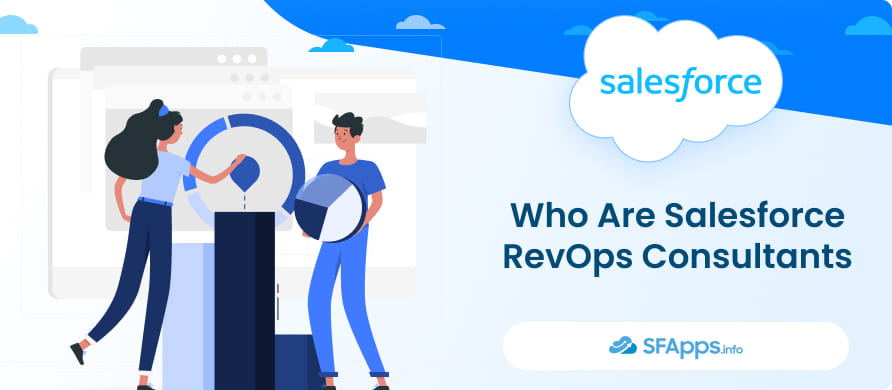
- Process Mapping: A strong consultant can study how leads, deals, and customer activities move between teams. From there, it’s possible to identify delays, fix broken steps, and simplify how work gets done.
- CRM Strategy: It’s important to know how to set up Salesforce to support the entire customer journey, from the first marketing interaction to closing the deal and managing ongoing relationships.
- Reporting and KPIs: Building useful reports and dashboards is essential. Good reporting helps teams understand their performance, track progress, and catch problems early.
- Automation and Efficiency: By using Salesforce automation tools, a RevOps consultant can reduce manual steps and make sure important actions don’t get missed. For example, tasks can be triggered when a deal reaches a certain stage, or alerts sent when follow-up is needed.
- Cross-Team Communication: Since RevOps touches sales, marketing, and support, it’s important to be able to work with all teams. Listening, asking the right questions, and explaining ideas clearly are part of the job.
- Change Management: New processes and tools often mean new habits for the team. A good consultant supports people through the transition, explains the reasons behind changes, and makes sure the updates are actually used.
Tools a Salesforce Revenue Operations Consultant Should Know
Here are the main Salesforce tools and related apps a RevOps consultant should be comfortable with:
- Agentforce Sales. The main part of Salesforce is used to track leads, deals, accounts, and contacts. It’s a must-have skill.
- Salesforce Marketing Cloud or Pardot (Account Engagement). It can also be used by a Salesforce Pardot consultant to send emails, set up lead journeys, and score leads before they reach the sales team.
- Salesforce Service Cloud. Helps teams manage support cases and customer follow-up. A good RevOps setup connects it with sales and marketing to show the full customer picture.
- Salesforce Reports and Dashboards. A consultant should be able to build reports that answer real business questions and create dashboards that are easy to understand.
- Salesforce Flow Builder. This tool helps create automations inside Salesforce. It can be used to guide users, update records, or send notifications.
- CPQ (Configure, Price, Quote). For companies with complex pricing, CPQ helps teams create accurate quotes. RevOps consultants should understand how to work with it if it’s in use.
- Revenue Intelligence Tools (like Salesforce Revenue Intelligence or third-party platforms). These tools help teams see what’s happening in the sales pipeline, spot trends, and make better forecasts. Salesforce Revenue Intelligence uses AI to show where deals are stuck, which ones are likely to close, and how reps are performing. It’s often powered by features from Einstein and the newer Agentforce platform.
- Data Tools like Data Loader or DemandTools. These tools help upload and clean data. A RevOps consultant should know how to keep Salesforce data accurate and up to date.
Insight:
The RevOps software market is growing fast. It was worth $3.71 billion in 2023 and could reach $15.9 billion by 2033.
This means more and more companies are using tools to help sales, marketing, and support teams work better together.
Salesforce is one of the top tools in this space. Its Revenue Cloud makes up over 20% of the market.
Many businesses choose it because it has a lot of useful features and trusted partners.
It’s a strong option for companies that want to organize their work and grow with fewer problems.
What Does a RevOps Consultant Do?
The consultant works closely with teams across the company to make sure the entire revenue process is consistent, trackable, and easier to manage inside Salesforce. The role covers many responsibilities, all focused on helping people work better together using the same tools and data.
1. Review How Teams Use Salesforce
Start by looking at how each team uses Salesforce. Check how leads are added, how deals move forward, and how support cases are tracked. The goal is to spot what’s missing, unclear, or not working well.
2. Fix Broken Processes
Once the problems are clear, help improve the steps teams follow. Make the process easier, more consistent, and make sure everyone knows what to do next.
3. Build Automations
Cut down on manual work by setting up automations. These can assign leads, send reminders, or update records automatically, so nothing gets missed.
4. Set Up Reports and Dashboards
Create reports and dashboards that show real numbers, open deals, lead progress, and team performance. This helps people see what’s going on and what to focus on.
5. Connect Sales, Marketing, and Service Data
Make sure all teams work with the same customer info. When everyone sees the same data, there’s less confusion and better teamwork.
6. Train Users and Answer Questions
Show people how to use new tools and explain why changes were made. Be there when someone needs help or has questions.
7. Clean and Organize Data
Fix messy or missing data. Set up simple rules to keep data clean going forward. Good data makes everything else work better.
8. Support Sales Forecasting and Planning
Help managers understand what’s likely to close and what’s not. Set up tools that help with planning and keep the pipeline clear.
9. Work With Leadership
Talk with company leaders to understand their goals. Then help build Salesforce tools that support those goals in a simple, useful way.
10. Stay Up to Date With Salesforce Changes
Keep an eye on new Salesforce features and updates. Suggest helpful changes when something new comes out.
Who Can Benefit From RevOps Services
Many types of businesses can gain from these services, especially those looking to grow, improve efficiency, and get better insights from their Salesforce setup. Below are some common client types that see strong benefits from working with a RevOps Salesforce consultant.
SaaS Companies
SaaS businesses work with recurring revenue, renewals, and customer success. A SaaS Revenue Operations consultant helps connect sales, support, and product data, so teams can grow faster and avoid confusion. With many customer touchpoints, these companies need a clear process and good data to reduce churn and increase upsells.
Product Startups
Startups move quickly but often lack structure. A Revenue Operations consultant for startups gives a clean setup in Salesforce that supports growth and avoids messy handoffs or lost leads. Early organization helps these companies scale without breaking their sales or marketing workflows.
B2B Tech Companies
With longer sales cycles and complex deals, B2B tech firms need strong processes. RevOps helps connect teams and gives better visibility into what’s happening in the pipeline. This way, everyone understands the deal status and can work together to close business more effectively.
Marketing Agencies
Agencies handle leads, proposals, and client projects at the same time. A RevOps setup helps them track every step, from new inquiries to ongoing client work. Clear data and reporting help agency leaders plan resources and improve client satisfaction.
Consulting Firms
Consultants often manage repeat clients, upsells, and project timelines. RevOps helps keep Salesforce organized, so teams can manage accounts and revenue in one place. This organization makes renewals and expansions easier to track and plan.
Customer Support Teams
Support and success teams need to see what happened before a customer reached them. RevOps connects Salesforce data so they can respond quickly and keep clients happy. Having a full customer view helps resolve issues faster and spot opportunities for additional services.
Sales-Led Organizations
Companies that rely heavily on outbound sales need clear tracking of leads, deals, and follow-ups. RevOps improves how Salesforce is used, helping reps stay focused and efficient. Better processes and data help sales teams close deals faster and meet targets more reliably.
Insight:
RevOps is not just a new idea, it actually works. Companies that use it see better results because their teams work together, their data is more accurate, and there’s less manual work. While Salesforce is a popular tool for RevOps, these benefits can happen in any system if the setup is done right.
Fractional vs Full-Time RevOps: Which Is Right for Your Business?
Choosing between a fractional (part-time or contract) RevOps consultant and a full-time RevOps employee depends on your company’s size, budget, and needs. Both options bring value, but understanding their differences can help you decide what fits your business best.
Fractional RevOps consultants usually work with multiple clients and provide expert support on specific projects or ongoing guidance without the cost of a full-time hire. Full-time RevOps professionals are dedicated team members who focus solely on your company’s needs every day.
The table below compares the two options to help you decide which might be better for your business.
| Fractional vs Full-Time RevOps | ||
|---|---|---|
| Aspect | Fractional RevOps Consultant | Full-Time RevOps Employee |
| Cost | Lower upfront cost; pay on an hourly or project basis | Higher cost, salary, and benefits required |
| Time Commitment | Part-time; flexible engagement | Full-time, dedicated daily presence |
| Scope of Work | Project-based or advisory, focused tasks | End-to-end ownership of RevOps processes |
| Business Size | Small to mid-sized companies or startups | Mid to large companies with complex needs |
| Need for Speed | Quick setup and fast results on targeted areas | Ongoing optimization and long-term strategy |
| Expertise Level | Often senior experts with broad experience | Can be senior or mid-level; embedded knowledge |
| Flexibility | High; can scale engagement up or down as needed | Lower; fixed role with specific responsibilities |
| Team Integration | Works remotely or periodically; less day-to-day interaction | Fully integrated in company culture and teams |
| Control Over Processes | Consultant advises and guides; company executes | Employee owns and manages daily processes |
| Best For | Startups, small businesses, or companies needing specific help or temporary support | Growing companies with ongoing RevOps needs and budget for full-time |
How to Hire a RevOps Consultant
Hiring the right RevOps expert can make a big difference in how well your revenue operations run. Here are clear steps to follow when looking to hire remote Salesforce consultants, whether fractional or full-time:
Step 1: Define Your Needs
Start by understanding what you need help with. Do you want someone for specific projects or a person to manage RevOps every day? Knowing this helps decide between a consultant and a full-time hire.
Step 2: Write a Clear Job Description
List the skills, tools, and experience required. Include what the role will do day to day and what success looks like. Be honest about your company size and budget.
Step 3: Search in the Right Places
Use job boards, LinkedIn, Salesforce community groups, or specialized agencies. For fractional consultants, you can also look at freelance platforms or ask for recommendations.
Step 4: Review Resumes and Portfolios
Look for relevant experience with RevOps in Salesforce, strong problem-solving skills, and knowledge of your industry or business model.
Step 5: Interview to Understand Fit
Ask about their past projects, how they handle challenges, and how they work with teams. Also, check if their communication style matches your company culture.
Step 6: Test Their Skills
Consider giving a small practical task or case study to see how they approach real problems.
Step 7: Check References
Speak with previous clients or employers to confirm their experience and work style.
Step 8: Make an Offer and Set Clear Expectations
Agree on the role’s responsibilities, working hours, and communication methods. For consultants, clarify contract terms and deliverables.
Step 9: Plan Onboarding and Support
Prepare to help the new hire understand your systems, people, and goals. Regular check-ins early on help get things going well.
Cost to Hire RevOps Talent: A Country Comparison
When hiring RevOps professionals, costs vary significantly by region. Here’s a basic comparison of hourly and monthly rates for both fractional (hourly) and full-time (monthly) roles in some common markets.
| RevOps Talent: A Country Comparison | ||
|---|---|---|
| Country | Approximate Hourly Rate (USD) | Approximate Monthly Rate (USD) |
| USA | $53 | $9,166 |
| UK | $43 – $58 | $7,568 – $10,208 |
| Germany | $29 – $40 | $5,104 – $7,040 |
| Poland | $19 – $26 | $3,344 – $4,576 |
| Ukraine | $21 – $29 | $3,696 – $5,104 |
Please Note:
- Rates are based on information from various job boards and salary research sites focused on different RevOps roles. For the US: ZipRecruiter; for the UK: Jobicy; for Germany: Jobicy; for Poland: Jobicy; for Ukraine: Jobicy.
- Monthly rates reflect full-time salary equivalents (including local taxes and benefits) but can vary widely.
- Rates depend on experience, specific skills, and market demand.
- Lower rates may come from junior or mid-level professionals, while senior experts are at the higher end of these ranges.
FAQs on RevOps Consultants
If you’re new to RevOps or considering bringing in outside help, it’s normal to have questions. Below are answers to some of the most common things companies want to know before getting started. This can help you decide what kind of support you need and what to expect from the process.
1. Do I need a full-time RevOps hire?
Not always. If you’re a smaller company or just need help with setup or specific problems, a fractional consultant can be enough. Full-time roles make more sense when you have ongoing work, a growing team, or need daily support.
2. Can a RevOps consultant help if we already have a Salesforce admin?
Yes. RevOps work often supports admins by helping with planning, process mapping, and reporting. The consultant can focus on strategy and improvements, while the admin handles day-to-day tasks.
3. Is RevOps only for sales teams?
No. While sales teams benefit a lot, RevOps also helps marketing, support, finance, and leadership teams. The idea is to connect everyone around a shared view of the customer and pipeline.
4. Do we need to rebuild everything in Salesforce to start with RevOps?
Not at all. In most cases, RevOps work starts with reviewing what you already have and improving it. You don’t need to rebuild the system. Small changes can make a big difference.
5. Is RevOps just for big companies?
No. In fact, many smaller companies benefit even more, especially if they don’t have in-house Salesforce experts or need a better structure while growing. RevOps can help you scale without getting overwhelmed.
6. Can we start small and expand later?
Yes. Many companies start with a short-term project or a part-time consultant, then expand as needs grow. This is common with fractional RevOps support.
7. Can RevOps help fix bad data in Salesforce?
Yes. A big part of RevOps is cleaning and organizing data. This includes removing duplicates, fixing missing fields, and helping teams enter data the right way going forward. Clean data is the base for better reports and better decisions.
Conclusion
RevOps is a practical way to help your teams use Salesforce better. It brings sales, marketing, and support together, makes your data easier to use, and helps everyone follow the same process.
You don’t need to rebuild everything or hire a big team to get started. Some companies work with a part-time consultant. Others bring someone in full-time when the work grows.
The goal is simple: make things clearer, more organized, and easier to manage as your business grows. If your team often works in different ways, struggles to track progress, or wants better reporting, RevOps can help.
Start by looking at what’s working and what’s not. From there, you can find the right support for your size and goals.

Antonina is a Salesforce Admin with six certifications: Salesforce Certified Platform Foundations, Platform Administrator, Platform Administrator II, CPQ Administrator, AI Associate, and Agentforce Specialist. She started working with Salesforce in 2021 as Intern Salesforce Developer. Now, a 2-Star Ranger on Trailhead, she continues to expand her skills and knowledge. She helps manage Salesforce systems, automate tasks, and improve processes. Antonina loves learning new things and exploring better ways to use technology. In her free time, she enjoys reading, playing sports, and exploring new tech ideas.

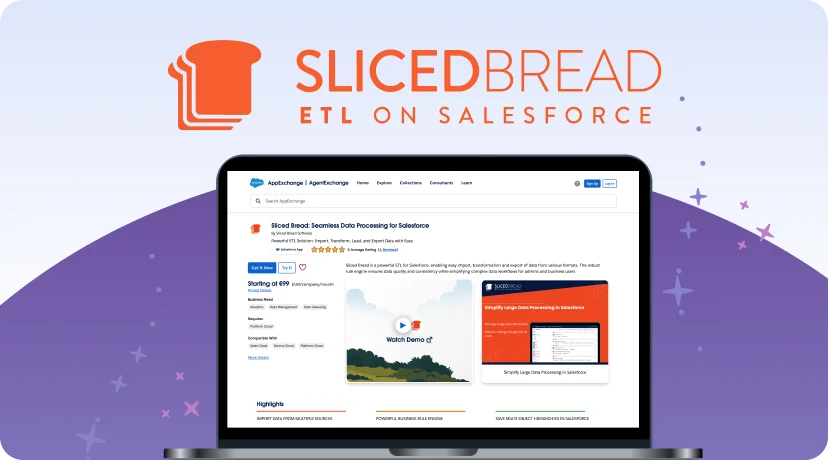
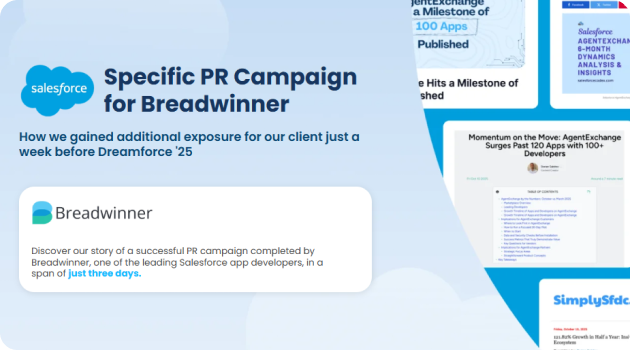
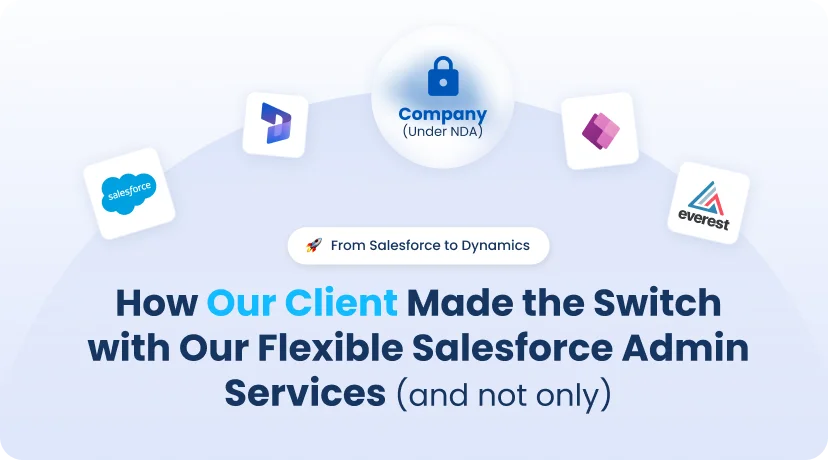
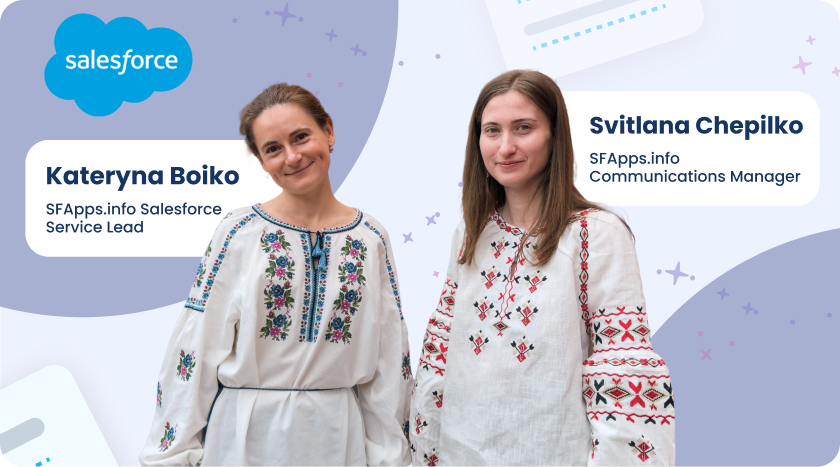

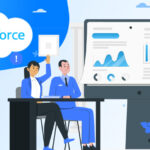 Previous Post
Previous Post Next Post
Next Post